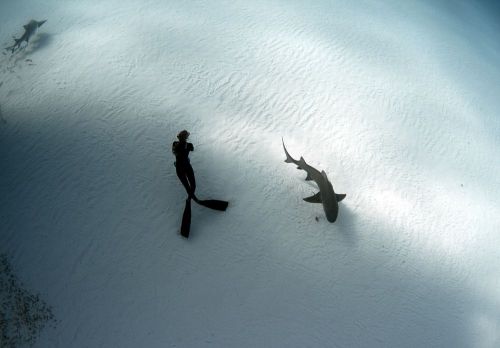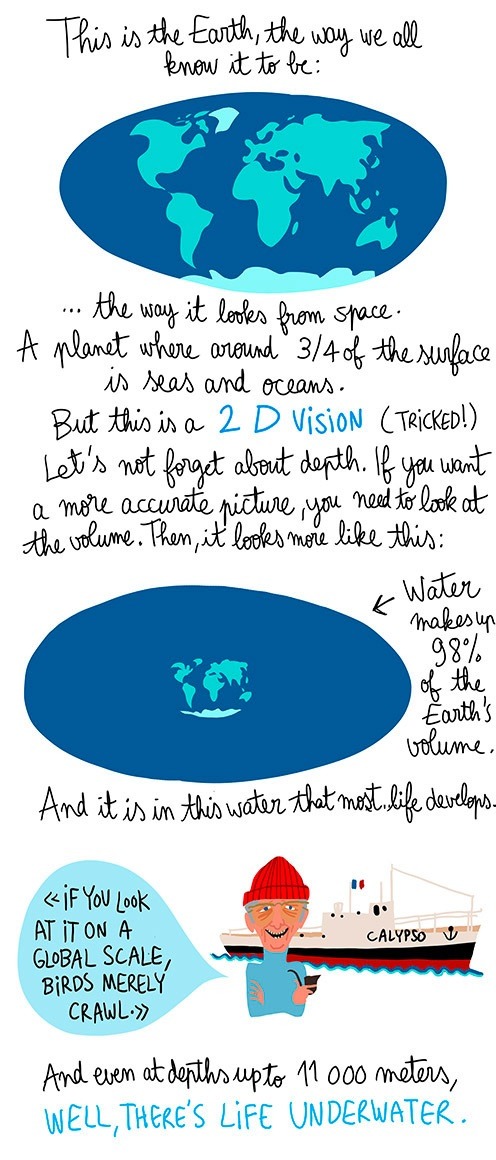“Indeed, Despite Programs Designed To Interest Girls In STEM, GoldieBlox, And Supermodels Celebrating

“Indeed, despite programs designed to interest girls in STEM, GoldieBlox, and supermodels celebrating the virtues of coding, the fields are still overwhelmingly male and seem virtually resistant to change. Jahren, a geochemist and geobiologist, argues that the problem is hardly one of enthusiasm, but rather widespread sexual harassment in the fields that, unsurprisingly, goes unpunished.
The kind of sexual harassment Jahren describes is hardly that of a Mad Men episode: groping and outright dickishness are easier to label and condemn as sexual harassment (and it’s worth noting that STEM has a problem with that too).
Rather, it’s the kind that prioritizes men’s feelings, and their expression of them, over the simple act of treating a woman as a professional colleague. Jahren persuasively argues that the persistence of this kind of behavior—the constant demand from both male colleagues and academic advisors that their feelings be acknowledged and legitimized—is one of the reasons women leave STEM fields.
An email forwarded to Jahren by a former student asking her advice typifies the problem:
[The student] forwarded an email she had received from a senior colleague that opened, “Can I share something deeply personal with you?” Within the email, he detonates what he described as a “truth bomb”: “All I know is that from the first day I talked to you, there hadn’t been a single day or hour when you weren’t on my mind.” He tells her she is “incredibly attractive” and “adorably dorky.” He reminds her, in detail, of how he has helped her professionally: “I couldn’t believe the things I was compelled to do for you.” He describes being near her as “exhilarating and frustrating at the same time” and himself as “utterly unable to get a grip” as a result. He closes by assuring her, “That’s just the way things are and you’re gonna have to deal with me until one of us leaves.”
It’s hard to imagine that the sender of the email thought that it would earn him the romantic admiration of his female colleague, coupled as it is with a vague threat likely meant to convey the authentic intensity of his attraction. And yet, as Jahren writes, this behavior has “been encountered by every single woman I know.”
Read the full piece here





More Posts from Llamaslikesciencetoo and Others


7 types of fog you didn’t know had names
Fog comes in several distinct varieties that are influenced by nearby bodies of water, landscape features and other local factors. Here are some of the most impressive forms of it on the planet.

Microscopic tardigrades are also called water bears because of their tiny lil bear legs and tiny lil bear-like movements


Palau vs. the Poachers
The isolated nation of Palau, in the South Pacific, comprises 250 small islands that take up only 177 square miles combined. But international law extends its authority to 200 miles from its coast, giving it control over 230,000 square miles of ocean. For a relatively poor country with no military and a tiny marine police division, and waters teeming with poachers, it’s a tall order. But, as The New York Times reporter Ian Urbina writes, Palau has mounted an aggressive response: it has banned bottom trawling and shark fishing, employed the latest in surveillance technology, and provided a model for collaboration among countries, companies and NGOs.
Reportage photographer visited Palau on assignment for The Times to show the marine police’s efforts and the natural resources they are trying to protect.
Read the article in this week’s issue of The New York Times Magazine.

Follow on instagram @bad_science_jokes

Come and take a “bite” out of nature & science, attending Explorers Society Members Event. #northmuseum #stemsisters #sharks (at North Museum of Nature & Science)

Fast-motion version {obviously}:

Source
Taphonomy









![[x]](https://64.media.tumblr.com/accf6b4514b2214fe106567daf0397bd/tumblr_o4bdqwebao1sstavyo1_500.jpg)
[x]









DEEP-SEA BOTTOM TRAWLING IS KILLING OUR OCEANS
Originally posted at Penelope Bagieu’s blog
-
 painttolive reblogged this · 1 year ago
painttolive reblogged this · 1 year ago -
 knifedclown liked this · 1 year ago
knifedclown liked this · 1 year ago -
 feministtheoryandthoughts reblogged this · 1 year ago
feministtheoryandthoughts reblogged this · 1 year ago -
 eyeonyou reblogged this · 1 year ago
eyeonyou reblogged this · 1 year ago -
 eyeonyou liked this · 1 year ago
eyeonyou liked this · 1 year ago -
 shesarmed liked this · 2 years ago
shesarmed liked this · 2 years ago -
 cccrrrfu reblogged this · 2 years ago
cccrrrfu reblogged this · 2 years ago -
 whatstheirstorylike reblogged this · 2 years ago
whatstheirstorylike reblogged this · 2 years ago -
 borealing liked this · 2 years ago
borealing liked this · 2 years ago -
 wordwelder liked this · 2 years ago
wordwelder liked this · 2 years ago -
 everybodygotawaterbuffalo liked this · 2 years ago
everybodygotawaterbuffalo liked this · 2 years ago -
 coelura liked this · 2 years ago
coelura liked this · 2 years ago -
 colourfromtheheart reblogged this · 2 years ago
colourfromtheheart reblogged this · 2 years ago -
 noymien reblogged this · 2 years ago
noymien reblogged this · 2 years ago -
 dandelionfunky liked this · 2 years ago
dandelionfunky liked this · 2 years ago -
 countingprimes reblogged this · 2 years ago
countingprimes reblogged this · 2 years ago -
 dechunk reblogged this · 2 years ago
dechunk reblogged this · 2 years ago -
 dechunk liked this · 2 years ago
dechunk liked this · 2 years ago -
 riots-ofcolor liked this · 2 years ago
riots-ofcolor liked this · 2 years ago -
 somethingexcessivelyphallic liked this · 2 years ago
somethingexcessivelyphallic liked this · 2 years ago -
 kaijuandcoffee reblogged this · 2 years ago
kaijuandcoffee reblogged this · 2 years ago -
 killinguwithumbrellas reblogged this · 2 years ago
killinguwithumbrellas reblogged this · 2 years ago -
 airagorncharda reblogged this · 2 years ago
airagorncharda reblogged this · 2 years ago -
 ruby-seadragon liked this · 2 years ago
ruby-seadragon liked this · 2 years ago -
 randomlettrrsqqssfxwcvhxnqbwriro liked this · 2 years ago
randomlettrrsqqssfxwcvhxnqbwriro liked this · 2 years ago -
 bonesandstyle liked this · 2 years ago
bonesandstyle liked this · 2 years ago -
 xdramarenamed reblogged this · 2 years ago
xdramarenamed reblogged this · 2 years ago -
 xdramarenamed liked this · 2 years ago
xdramarenamed liked this · 2 years ago -
 scintal liked this · 2 years ago
scintal liked this · 2 years ago -
 truly-fantastic-me reblogged this · 2 years ago
truly-fantastic-me reblogged this · 2 years ago -
 truly-fantastic-me liked this · 2 years ago
truly-fantastic-me liked this · 2 years ago -
 big-scary-bird liked this · 2 years ago
big-scary-bird liked this · 2 years ago -
 shinywoodpoetrysludge reblogged this · 2 years ago
shinywoodpoetrysludge reblogged this · 2 years ago -
 shinywoodpoetrysludge liked this · 2 years ago
shinywoodpoetrysludge liked this · 2 years ago -
 decadentrebelexpert liked this · 2 years ago
decadentrebelexpert liked this · 2 years ago -
 thesadboy liked this · 3 years ago
thesadboy liked this · 3 years ago -
 kimberlywilliamsworld reblogged this · 3 years ago
kimberlywilliamsworld reblogged this · 3 years ago -
 broken-wings-will-fly-again liked this · 3 years ago
broken-wings-will-fly-again liked this · 3 years ago -
 caterpillarwoman liked this · 4 years ago
caterpillarwoman liked this · 4 years ago -
 silverthornlady reblogged this · 4 years ago
silverthornlady reblogged this · 4 years ago -
 mmm-donut-seeds reblogged this · 4 years ago
mmm-donut-seeds reblogged this · 4 years ago
Mainly interested in ecology, but also the entirety of science.
179 posts